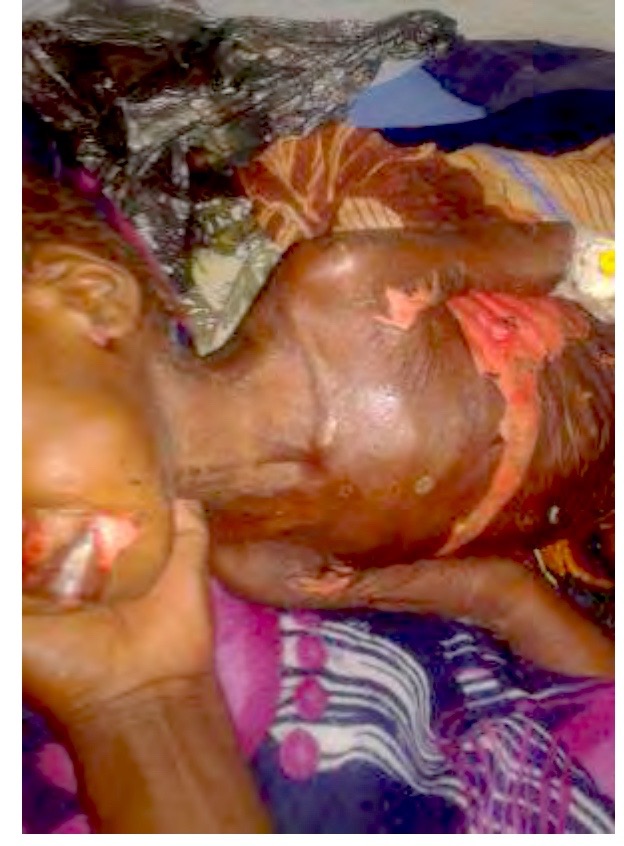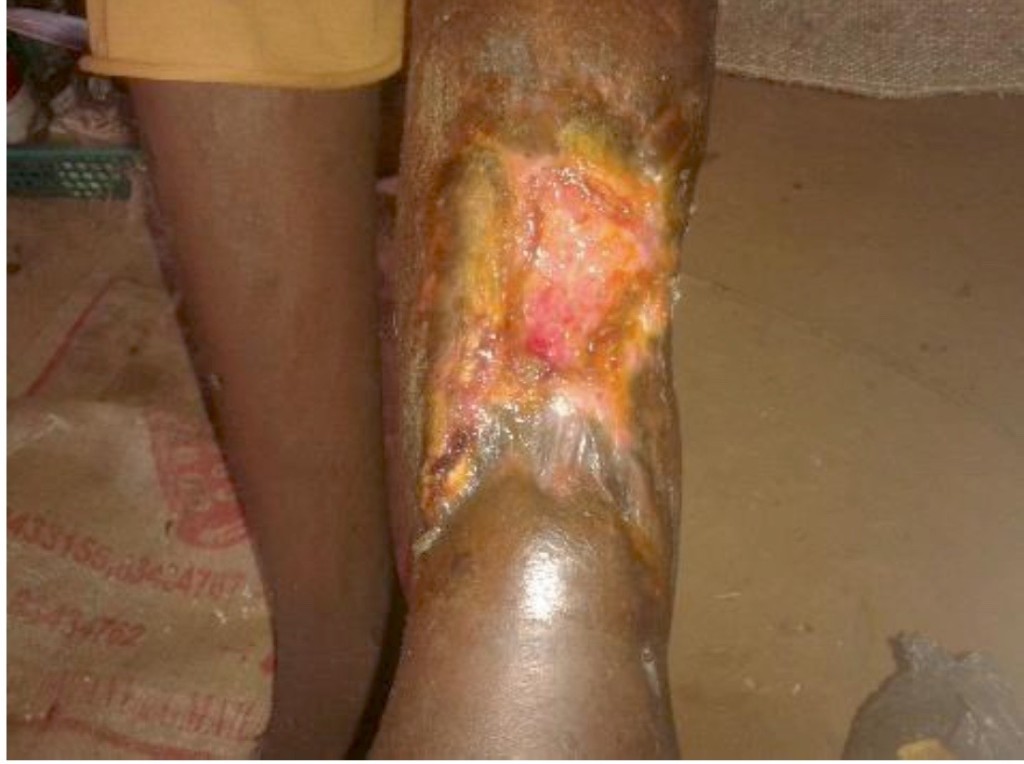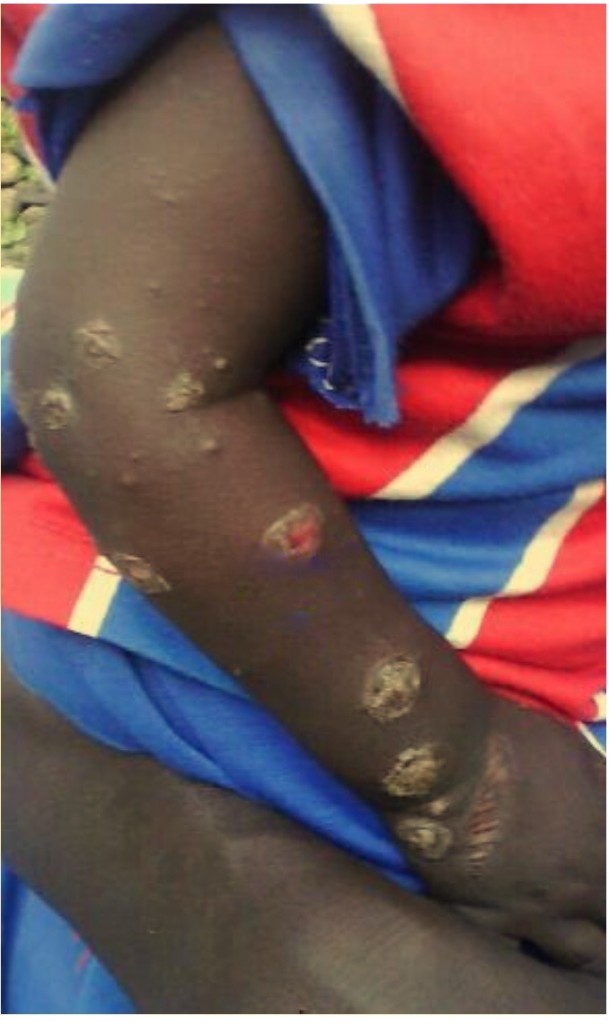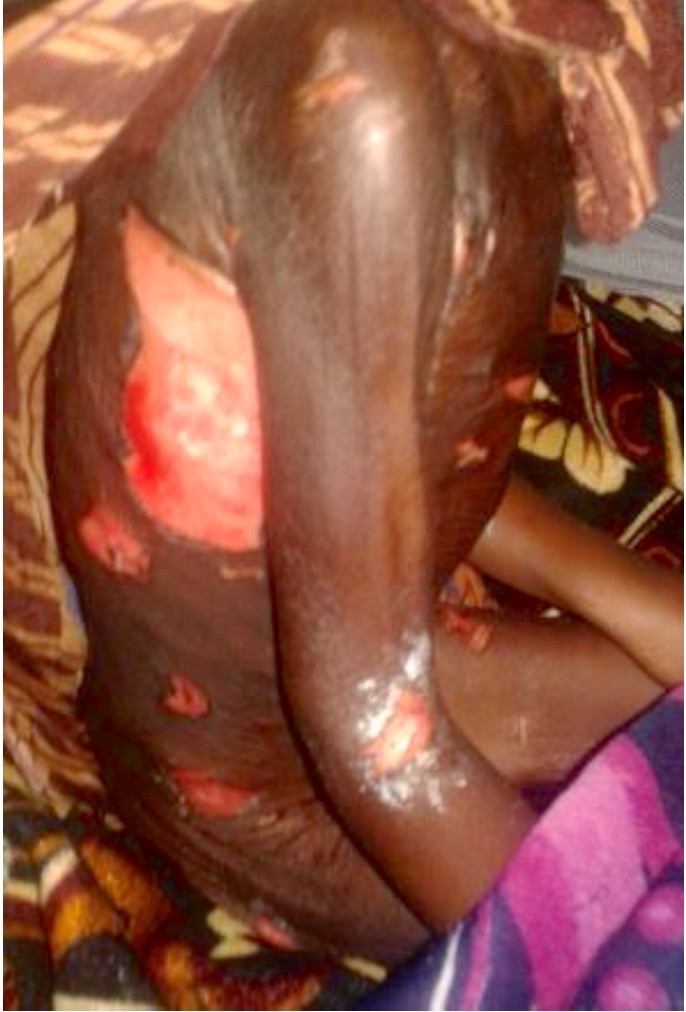Chemical Weapons Use in Darfur: The World Walks Away
Eric Reeves | October 18, 2016
Huffington Post | http://www.huffingtonpost.com/eric-reeves/chemical-weapons-use-in-d_b_12545798.html
Sudan Tribune | http://www.sudantribune.com/spip.php?article60580
Despite overwhelming evidence of Khartoum’s use of chemical weapons in the Jebel Marra region of Darfur (western Sudan), the international community seems to be quietly walking away from its responsibility to investigate. A report released on September 29 by Amnesty International contains numerous (and painfully similar) photographs of victims, interviews with victims and witnesses, and assessments by two experts in non-conventional weapons. The descriptions of the release of poisonous gases are relentlessly congruent detail; Amnesty relied on more than 250 interviews of people from the region in painting a larger picture of wholesale civilian destruction; 57 of these spoke directly to the issue of chemical weapons use in 32 different attacks. And the photographs…. They are simply soul-destroying in the human agony they reveal. U.S. Secretary of State John Kerry described the use of chemical weapons in Syria as a “moral obscenity.” Despite the authority of the Amnesty report, such language is conspicuously absent in the case of Darfur.
Photographs of victims reported by Amnesty International
Indeed, over the past week the chances of an investigation of these clear violations of the Chemical Weapons Convention—to which Sudan is a signatory—have clearly diminished. The Organization for the Prohibition of Chemical Weapons (OPCW), with a self-described mandate to “implement the provisions of the Chemical Weapons Convention,” failed in Executive session last week to reach agreement to push for an investigation. Ultimately this is a decision not so much of the powerless OPCW but of the signatory nations to the CWC whose political support is essential to initiative an investigation. In the event, it appears such support was weak or non-existent.
Various nations—including the U.S., France, Great Britain, and Canada—have signaled their concern; but a plan mooted to have the four countries push together for an investigation evidently failed. While all profess support for any investigation that is mounted, this amounts to little. For the UN is paralyzed, not only by the conspicuous divisions in the Security Council, but by the fact that the UN presence in Darfur takes the form of the UN/African Union “Hybrid” Mission for Darfur (UNAMID).
UNAMID formally took up its mandate in January 2008, with a Status of Forces Agreement (SOFA) signed by Khartoum that nominally gives UNAMID to investigate anywhere, and at any time, in Darfur. But the SOFA was a grim ruse by Khartoum: from the beginning UNAMID has prevented on countless occasions, including in fulfilling its primary mandate of civilian protection. It has been denied access to most of the Jebel Marra region for years, and in particular the areas where Amnesty International reported specific locations of chemical weapons attacks. During these attacks, as many as 250 people were killed, disproportionately children. The deaths, as well as the permanent injuries, are horrific beyond description. The number of deaths and injuries likely far exceeds what Amnesty was able to confirm by interviews from outside Sudan, to which it has long been denied access.
UNAMID has declared, whether out of unforgiveable ignorance or mendacity, that it has seen no evidence of chemical weapons use—none whatsoever according to Martin Uhomoibhi, the Nigerian head of mission. But of course UNAMID—a mission that has failed badly, even now can’t secure access to Jebel Marra, and has been marked by corruption, deception, and ghastly sell-promotion—has a considerable stake in denying the use of chemical weapons so close to its various bases on the perimeter of Jebel Marra. There is simply no reason, given past reporting (and non-reporting) history to take UNAMID’s claims seriously.
Darfur and Historical Precedent
Darfur has defined a number of grim precedents during the period of gross violence against civilians that began in 2003: it is the longest genocide in over a century; it has occurred despite compelling reports of the genocidal nature of Khartoum’s counter-insurgency strategy from the first months of ethnically-targeted civilian destruction; it is a conflict that has generated more flouted UN Security Council resolutions that other in the history of the UN; the peacekeeping mission meant to respond to the catastrophe in Darfur is certainly the most dismal failure in the history of the UN’s Department of Peacekeeping Operations (UN DPKO), despite being one of the most expensive; and Darfur is the first ongoing genocide of which the world simply tired. Once the focus of concerted civil society, human rights, news media, and celebrity attention, Darfur is now known chiefly by virtue of the reporting of two Sudanese news outlets—Radio Dabanga and Sudan Tribune. No journalists or human rights groups are allowed into Darfur.
Chemical weapons use should have been a catalyst for renewed interest in the relentless and massive violence perpetrated against the marginalized populations of Sudan. For the Jebel Marra offensive was far from the first time that chemical weapons use has been authoritatively reported. Integrated Regional Information Networks (IRIN) recently published a substantial account very recently about chemical weapons use by Khartoum in the Nuba Mountains of South Kordofan, and as long as ago as 2000, Doctors Without Borders/Médecins Sans Frontières (MSF) reported Khartoum’s bombing of civilian hospitals in what is now South Sudan, and identified what were clearly chemical weapons used during these attacks.
Additional photographs from the Amnesty International report
Instead, what we see throughout Europe and in the U.S. is a growing rapprochement with the Khartoum regime, one that sees, for example, Germany building “concentration camps” in Sudan to help staunch the flow of African refugees; the European Union as a whole has agreed to provide high-tech monitoring and registration equipment to Khartoum’s notoriously brutal National Intelligence and Security Services. The U.S.—in its lust for whatever counter-terrorism intel Khartoum can provide—moves steadily closer to normalization of relations, a lifting of economic sanctions, and removal of Sudan from the State Department’s annual listing of “state sponsors of terrorism,” a listing that continues to be justified by much of Khartoum’s behavior (e.g., in Libya).
What should be a situation obviously demanding investigation per the terms of the CWC has instead become a moment for a subtle dance of avoidance. Chemically gassed Syrian children are no more a “moral obscenity” than gassed Darfuri children, but this seems an equation that escapes John Kerry, President Obama, and too many international leaders.
Yet another photograph from the Amnesty International report
Will Khartoum resist an investigation? Of course—and strenuously. The sheer military and logistical challenges to an investigation may be insurmountable if Khartoum resists. But that is no excuse for acquiescing in well-documented war crimes that are part of a larger campaign of genocide. An investigation must be demanded, and Khartoum made to deny that investigation before the eyes of the world. Perhaps that will bring some moral and political clarity to those fashioning policy toward this barbaric regime.
Eric Reeves has written extensively on Sudan for almost two decades; he is a Senior Fellow at Harvard University’s François-Xavier Bagnoud Center for Health and Human Rights.




